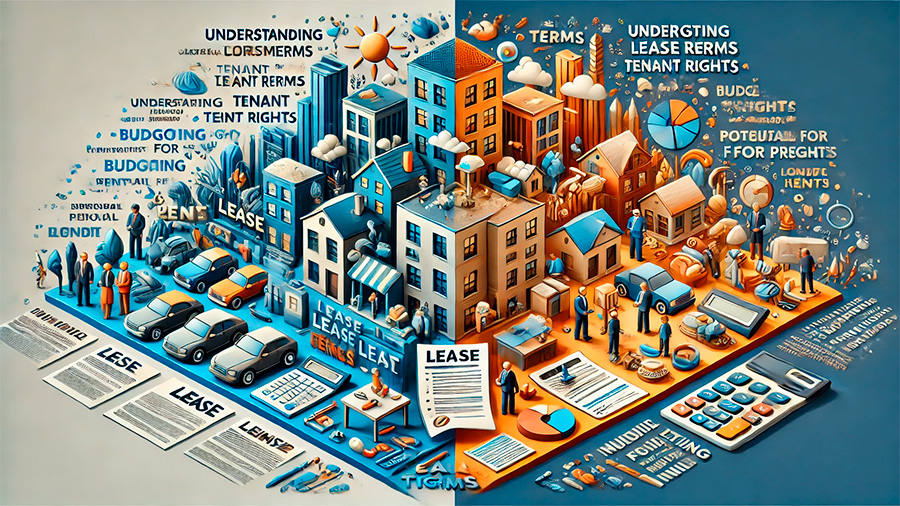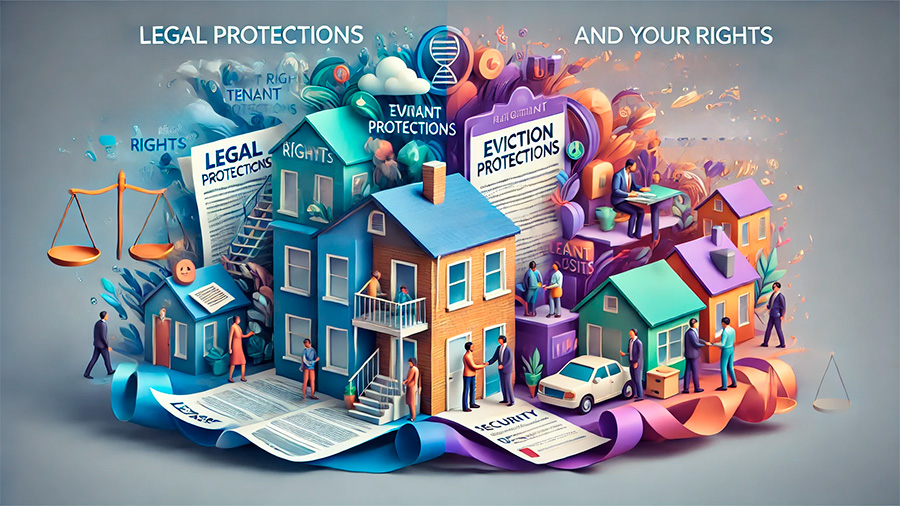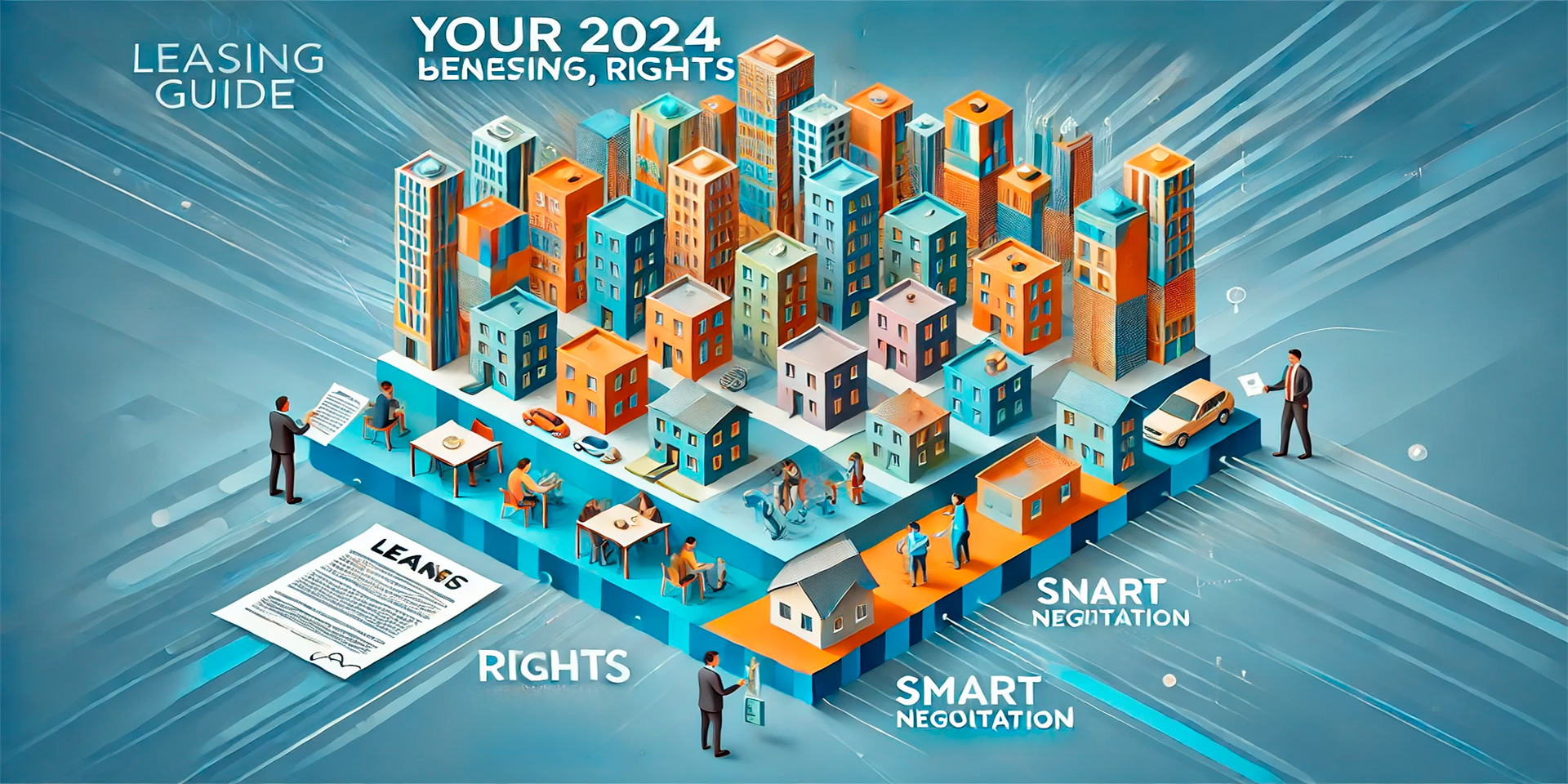Leasing a residential property has become an increasingly popular option, especially as housing prices continue to rise and flexibility becomes a priority for many individuals and families. While buying a home has long been considered a key milestone, leasing offers its own set of advantages, particularly for those who want the freedom to move, avoid maintenance responsibilities, or reduce upfront financial commitments. However, before signing a lease, there are key considerations to ensure the arrangement suits your lifestyle and financial goals. This article will cover everything you need to know about leasing a residential property in 2024.
The Benefits of Leasing Over Buying
Leasing provides several advantages over homeownership, particularly for individuals who prioritize flexibility or are not ready for the long-term financial commitment that comes with buying property. Renting can be a smart choice depending on your current situation, offering you more mobility and fewer responsibilities.
Leasing a home requires significantly lower upfront costs compared to purchasing. Renters typically only need to pay the first month’s rent, a security deposit, and occasionally an application fee. This is a stark contrast to the substantial down payment, closing costs, and fees associated with buying a home. Leasing allows individuals to maintain liquidity and use their savings for other financial goals, such as investing or paying down debt.
One of the biggest advantages of leasing is the flexibility it offers. With a lease, you can move more easily when your term ends, allowing you to adapt to changing circumstances, such as job relocations or lifestyle preferences. Leasing is also a good option for those who prefer not to commit to one location for an extended period or who want the freedom to explore different neighborhoods without the long-term responsibilities of homeownership.
In addition, when you lease, your landlord is generally responsible for maintaining the property. This includes repairs, routine maintenance, and any major issues that arise, such as a broken furnace or plumbing problems. This can save renters significant amounts of money, as homeowners are typically responsible for all upkeep and repair costs, which can quickly add up. Renters benefit from the convenience and cost savings of having maintenance handled by the landlord or property management company.

Key Considerations Before Leasing a Property
While leasing offers numerous benefits, it’s important to carefully evaluate a property and the terms of the lease before signing an agreement. Leasing without fully understanding the terms or without considering your long-term needs can lead to complications down the road. Here are the key factors to keep in mind.
One of the first things to consider is the length of the lease. Most residential leases are for a fixed term, typically 12 months, though shorter or longer leases are sometimes available. Make sure the lease length aligns with your plans. If you anticipate needing to move soon, a shorter-term lease or a month-to-month rental might be better. On the other hand, if you’re looking for stability and don’t plan to move, a longer-term lease can lock in your rent and provide predictability.
It’s essential to thoroughly understand the rent and payment terms outlined in your lease. The lease should clearly state the amount of rent, when it’s due, and whether any late fees apply if payments are delayed. Additionally, some leases include provisions for rent increases, particularly for long-term leases. Make sure you know if and when the rent may increase during your lease term so you can plan your finances accordingly.
Beyond the monthly rent, the lease may also outline additional fees, such as utilities, maintenance charges, parking fees, or amenity access. Clarify which expenses are your responsibility and which are covered by the landlord. It’s important to factor these additional costs into your budget to get a clear picture of your total monthly housing expenses.
Leases typically contain various rules and restrictions that govern the use of the property. Make sure to review these rules carefully to ensure they align with your lifestyle. Common restrictions may include limits on having pets, noise regulations, or limitations on modifications you can make to the property, such as painting or installing fixtures. If you have specific needs, such as wanting to keep a pet or make changes to the living space, discuss these with the landlord before signing the lease.
Before signing, make sure you fully understand the security deposit terms. Most landlords require a security deposit, which is typically equivalent to one month’s rent, to cover any potential damage to the property. Clarify the conditions under which your security deposit will be returned, such as whether it covers only damage or can also be used for unpaid rent. It’s also wise to take photos of the property when you move in to document its condition, which can help protect your deposit when you move out.
In a competitive rental market, you may encounter landlords who want tenants to commit to longer leases or who offer certain incentives, such as a reduced security deposit or the first month’s rent free. While these offers can be appealing, make sure you understand the full terms of the lease before committing. It’s important to strike a balance between securing a favorable rental agreement and ensuring that the lease terms work for your long-term goals.
‘

Legal Protections and Your Rights as a Tenant
As a tenant, you have certain legal protections, but it’s essential to understand your rights and responsibilities under the lease agreement. Familiarizing yourself with tenant rights can help you avoid common pitfalls and ensure that your experience is positive and fair.
In many regions, rent control laws may apply to certain rental properties, limiting the amount that landlords can increase rent each year. Rent control provides stability and protects tenants from sharp rent increases that could otherwise make the property unaffordable. If you’re renting in an area with rent control, make sure you understand the local regulations and how they affect your lease.
Leases typically outline both the tenant’s and landlord’s responsibilities when it comes to repairs and maintenance. In most cases, the landlord is responsible for maintaining the property in a livable condition, including making necessary repairs. However, tenants are generally expected to report issues promptly and to take reasonable steps to maintain the property, such as keeping it clean and preventing damage. Understanding your maintenance obligations will help prevent disputes and ensure the property remains in good condition throughout your tenancy.
Tenant laws also protect you from discrimination during the leasing process. Landlords cannot deny your application based on race, gender, religion, familial status, or disability. Additionally, some jurisdictions have specific protections for income sources, such as housing vouchers. If you feel you’ve been discriminated against, you can file a complaint with the appropriate local or federal housing authorities.
Eviction is a serious issue, and it’s important to understand the circumstances under which a landlord can legally evict a tenant. Generally, landlords can only evict tenants for specific reasons, such as failing to pay rent, violating the lease terms, or damaging the property. However, eviction laws vary by region, and in some areas, tenants have additional protections, such as the right to cure lease violations before being evicted. Knowing your local eviction laws will help you understand your rights and avoid potential conflicts with your landlord.
Negotiating a Favorable Lease
While it’s often assumed that rental terms are non-negotiable, many aspects of a lease can be negotiated, particularly in less competitive markets. Negotiating the lease allows you to secure more favorable terms that fit your financial situation and lifestyle.
You may be able to negotiate the rent itself, especially if you’re moving into a property that has been on the market for a while or if you’re willing to sign a longer-term lease. Before negotiating, research comparable rental properties in the area to ensure you’re asking for a fair rate.
Leases often come with additional fees, such as parking, pet fees, or utility charges. If these fees seem excessive, you can request that the landlord waive or reduce them. For example, if you don’t need parking, you could ask for a discount on the monthly rent by not using the assigned space.
Many landlords appreciate tenants who are willing to commit to longer lease terms, as it reduces turnover and provides steady income. If you’re comfortable staying in the property for more than a year, offering to sign an 18- or 24-month lease could give you more leverage in negotiating rent or other favorable terms.
Conclusion: Navigating the Leasing Process in 2024
Leasing a residential property can offer flexibility and lower upfront costs compared to homeownership, making it an attractive option for many individuals. However, understanding the lease terms, your legal rights, and potential negotiation opportunities is crucial to ensuring a positive rental experience. By carefully reviewing the lease agreement, budgeting for all associated costs, and considering your long-term goals, you can confidently navigate the leasing process and find a property that meets your needs in 2024.

